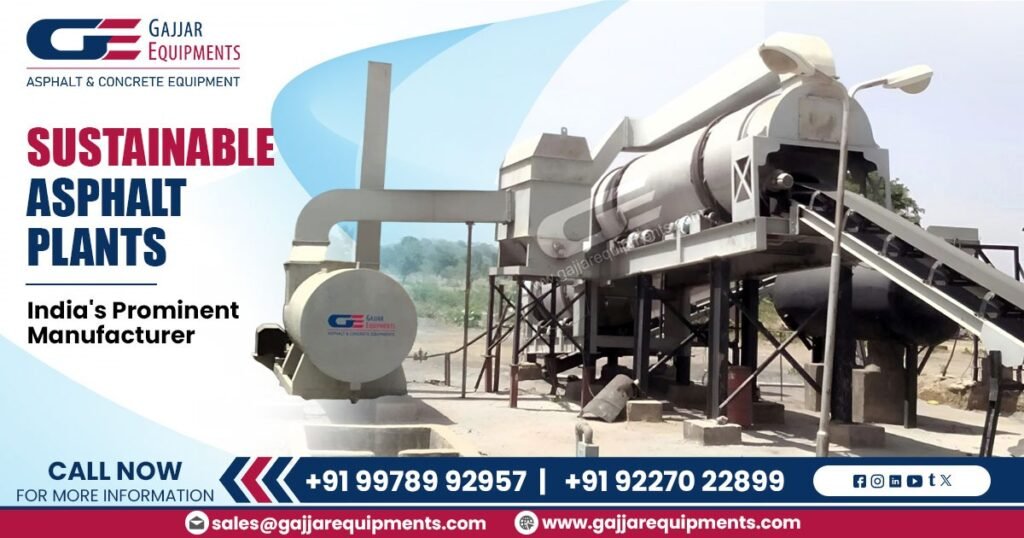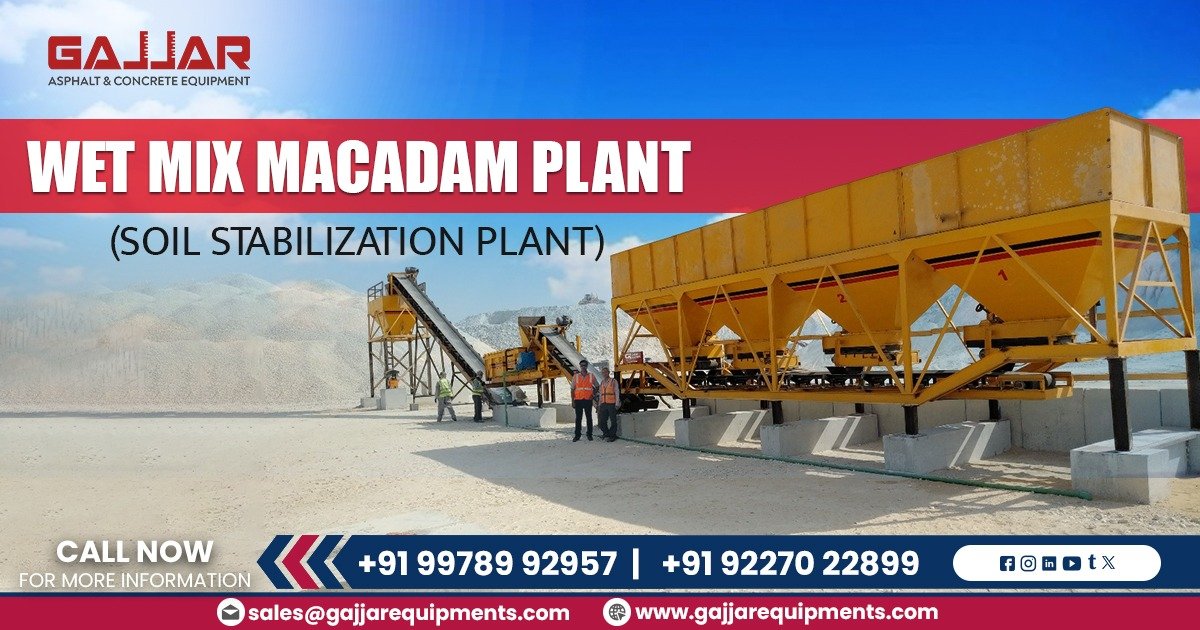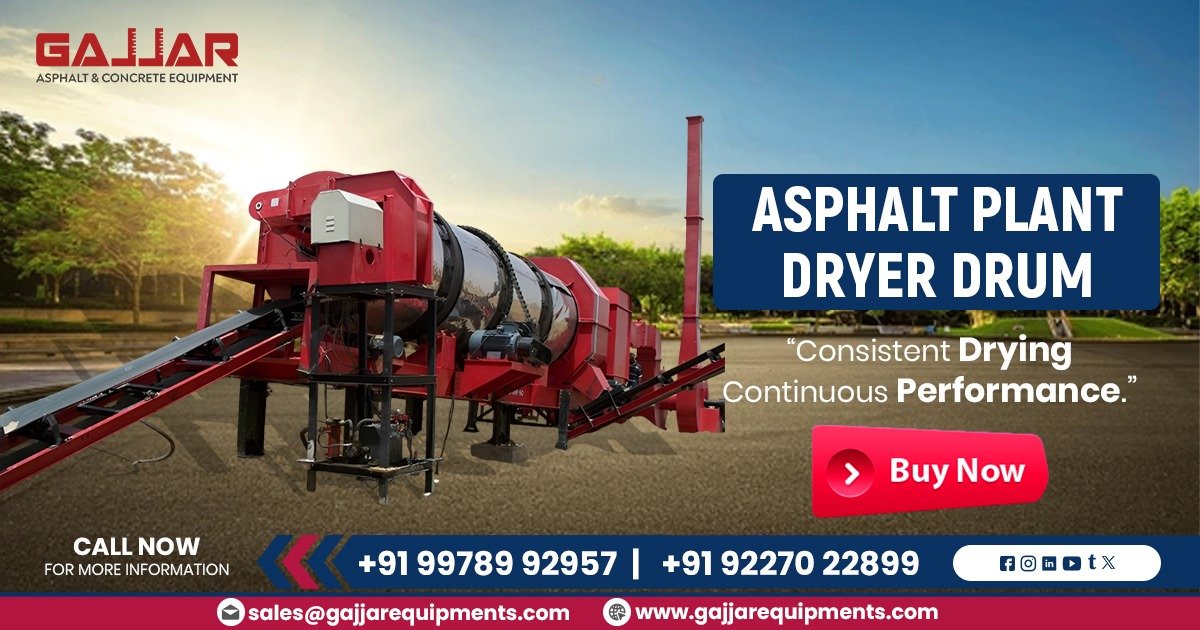Gajjar Equipments Private Limited’s manufacturing unit is in Ahmedabad, Gujarat, India.
Sustainable asphalt plant manufacturing focuses on creating environmentally friendly asphalt production processes that minimize carbon footprints, conserve natural resources, and reduce waste.
This approach integrates advanced technologies, such as energy-efficient heating systems, reclaimed asphalt pavement (RAP) usage, and emission control equipment, to produce high-quality asphalt while adhering to stringent environmental regulations. By prioritizing sustainability, manufacturers contribute to a greener construction industry, promoting long-term ecological balance and paving the way for sustainable infrastructure development.
Key considerations for a Sustainable Asphalt Plant include:
Reclaimed Asphalt Pavement (RAP): The demand for RAP in today’s asphalt production is vital. Advanced technologies in asphalt plants now enable gentle heating of the binder in RAP, increasing RAP content up to 90% while maintaining high quality.
This has significantly reduced CO2 emissions, production costs—thanks to lower bitumen, mineral, and transport expenses—and dependence on natural resources like oil and aggregates.
Moreover, digital tools for dynamic RAP addition, which allow for adjusting the RAP ratio even during production, are now widely adopted in many asphalt plants.
Noise: Modern exhaust and burner fans, along with four-level cladding and stack silencers, have reduced ambient noise by up to 20-25 dB.
Fumes and Odours: Contemporary solutions at key points like bitumen tanks, stacks, suction systems, and water misting in loading areas have significantly minimized fumes and odours in asphalt plants.
Dust Pollution Control: Modern plants feature highly efficient baghouse filters that reduce exhaust dust to less than 10 mg/Nm3. Key dust reduction areas include separate cold filters, housing and suction of cold feeders and belt transfer points, the loading area, the mixing tower, skip hood, oversize/overflow buffer silo, and filler loading area.
Low-Temperature Asphalt: The relationship between asphalt manufacturing temperature and energy consumption, as well as fumes emissions, is exponential. Typically, within the hot mix asphalt temperature range of 160-180ºC, each 10ºC reduction can cut energy use and emissions by up to 25%.
Modern asphalt plants now utilize technologies that enable asphalt production at lower temperatures compared to the traditional 160-180ºC range.
This shift results in substantial environmental benefits, including reductions in fumes and odours at construction sites. Additionally, lower temperatures enhance worker safety and decrease the aging of the asphalt binder.
Energy and CO2 Emissions: Advanced digital modules provide straightforward information about energy consumption and CO₂ emissions per ton of produced asphalt. By continuously comparing these figures with historical data or set targets, operators can adjust the process in real time to reduce energy waste and enhance sustainability.
Additionally, modern asphalt plants are replacing high-energy-consuming components like gas, fuel oil, or coal-powered burners with new-generation equipment that uses more eco-friendly alternatives, such as wood pellets or biofuels.
In summary, sustainable asphalt plant manufacturing is revolutionizing the industry by reducing environmental impact and enhancing efficiency. Advanced technologies like energy-efficient heating systems, reclaimed asphalt pavement (RAP) integration, and emission control measures are at the forefront.
Gajjar Equipments Pvt. Ltd. is committed to leading this green transformation, providing innovative solutions that ensure your asphalt production is both eco-friendly and cost-effective. Partner with us to embrace sustainability and set new standards in the asphalt industry.
View Product: Click Here








